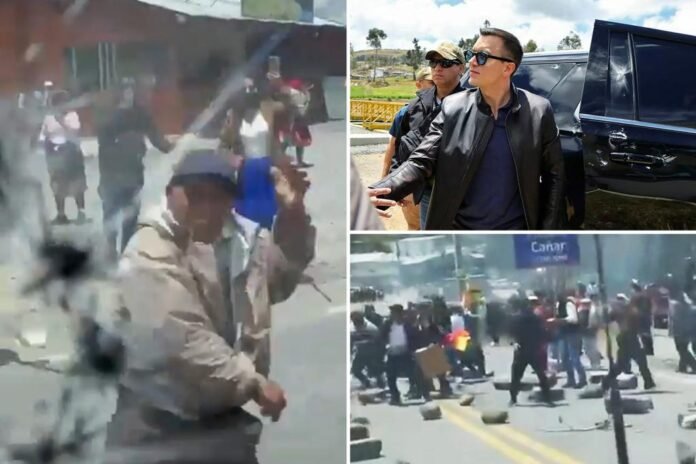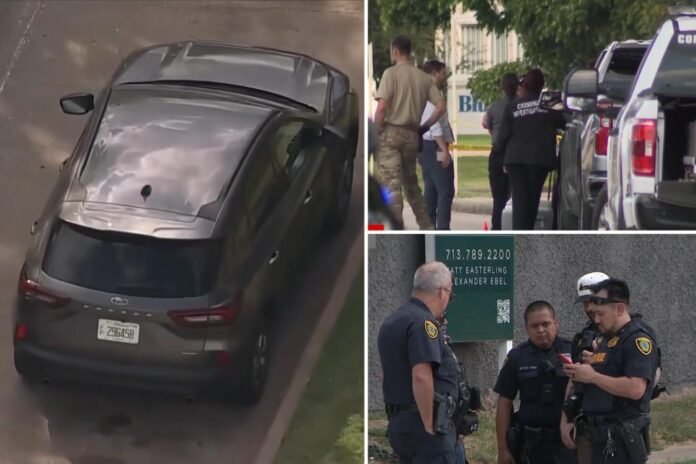Ecuador’s President Daniel Noboa was hit by a rock‑throwing protest last week, sparking a tense debate over whether the assault was an attempt on his life.
The attack happened in Cañar, a province south of Quito, when the president’s motorcade was passing through a neighborhood ridden with tension from recent protests. Protesters—largely part of the Confederation of Indigenous Nationalities of Ecuador—delivered rocks that struck the vehicles. Five people were detained on the scene, but a judge declared their arrest illegal Tuesday and ordered them released. The Attorney General’s Office said the ruling bars the state from pressing charges against the five.
Noboa described the assault as “a clear assassination attempt and an act of terrorism.” He called for an end to violence and urged the authorities to investigate the incident thoroughly. Meanwhile, the Indigenous groups say the motorcade entered a “known protest area” and that they are defending the community’s demands for lower fuel prices. They have called on international human‑rights bodies to keep a close eye on the situation.
The clash in Cañar follows a wave of demonstrations that erupted after President Noboa lifted a fuel subsidy in August. The decision raised diesel prices from $1.80 to $2.80 a gallon and sparked protests that have lasted two weeks. In a move to restore order, Noboa declared a state of emergency Sunday that covered 10 provinces. The government says it has failed to keep public order, while opposition groups insist the crackdown is heavy‑handed.
Energy Minister Inés Manzano told the press that bullet marks had appeared on the motorcade cars, but no official investigation has confirmed that claim yet. The video footage that appeared on social media shows piles of concrete and stones laid across the road and clear evidence that the motorcade was attacked from both sides of the path.
In the week before the motorcade’s assault, police and Indigenous protesters clashed over fuel prices in a separate incident that left one civilian dead and several injured. Police arrested nearly a hundred people, and some protesters even briefly held military officers before releasing them.
The United Nations Secretary‑General António Guterres condemned the violence and called for a peaceful dialogue. The U.S. State Department’s Bureau of Western Hemisphere Affairs also criticized the attack, saying it stands with Ecuador “as authorities investigate and ensure accountability.” Both voices emphasize that political violence must not be tolerated.
The attack and the broader protests are eerily ironic for a president who was elected with strong Indigenous support. Noboa, who was re‑elected last year, relied on that backing, but the most vocal Indigenous groups now openly opposed his policy shifts. Their frustration centers on the fuel subsidy removal and the perceived dismissal of their demands.
More than just a headline story, the incident raises questions about how a government can balance security, public sentiment, and the rule of law. As the investigation continues, both sides demand evidence and accountability. The world watches closely, hoping that Ecuador can restore peace without sacrificing democratic principles.
Source: New York Post
Stay informed on all the latest news, real-time breaking news updates, and follow all the important headlines in world News on Latest NewsX. Follow us on social media Facebook, Twitter(X), Gettr and subscribe our Youtube Channel.



